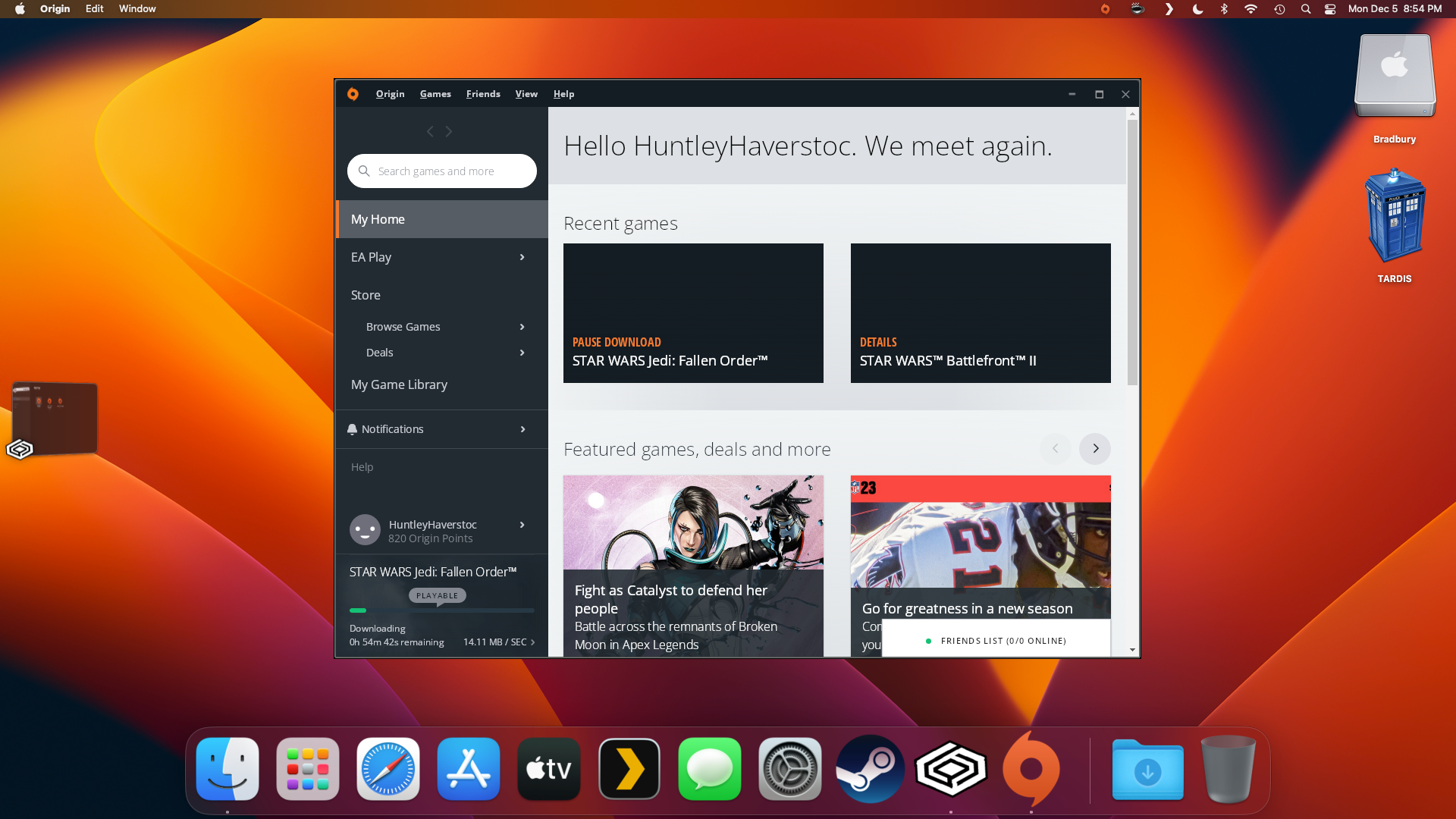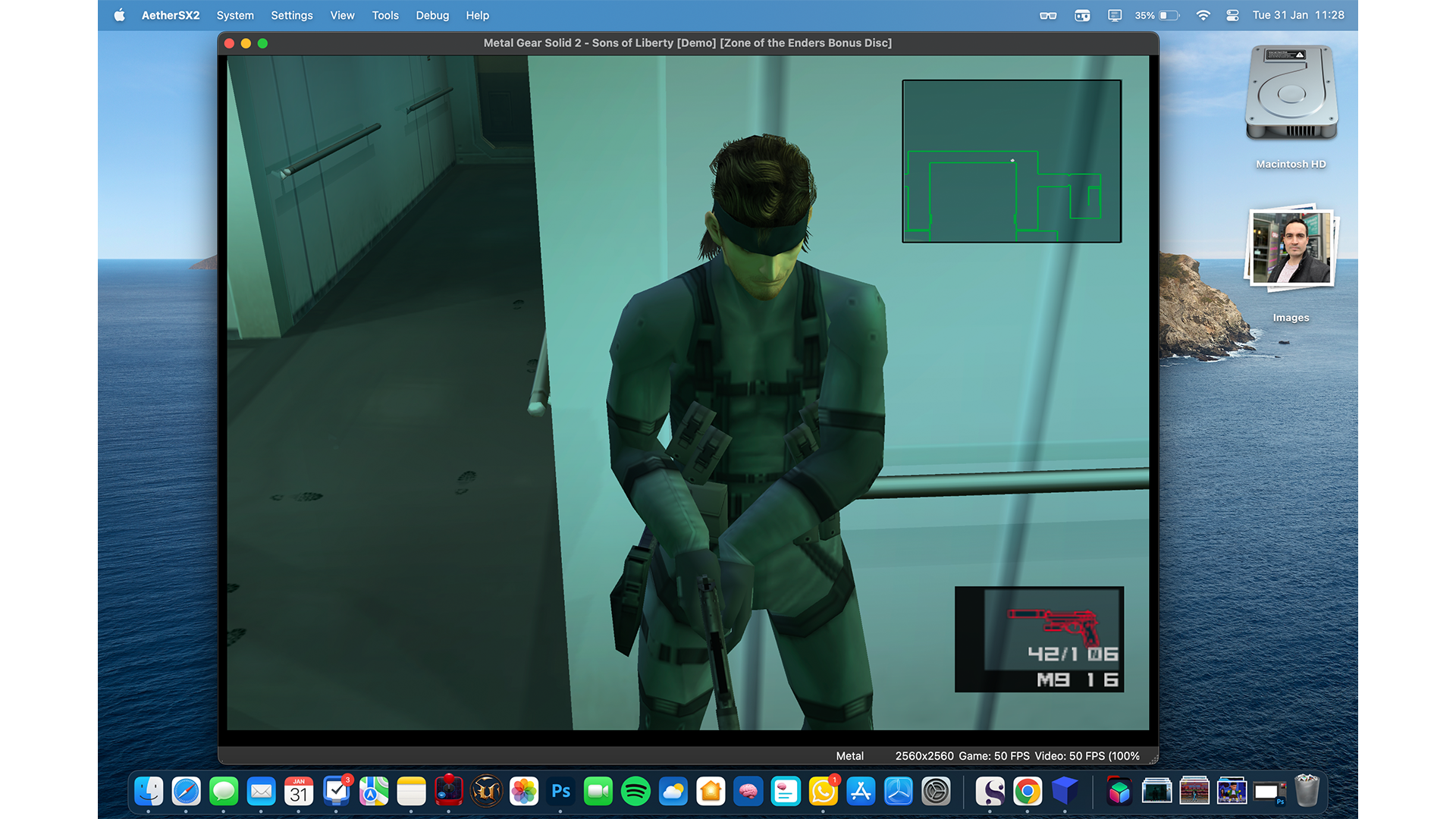Game Porting Toolkit in macOS Sonoma won’t fix what’s broken with Mac games
The problem with Mac gaming isn’t technical, it’s business.

Apple’s new Game Porting Toolkit has received a lot of attention since its introduction at WWDC back in June, and it’s easy to understand why.
While the new kit is aimed at game developers specifically, enthusiasts have been able to get some high-profile Windows-only game titles working on the Mac.
Game Porting Toolkit is certainly impressive, but getting games to run on Mac hardware has never been the issue, and Game Porting Toolkit, unfortunately, does nothing to address them.
First, a history

Game Porting Toolkit builds on an existing open-source project called Wine, which lets Windows apps (and games) run on Unix-like operating systems, including macOS. Wine’s been a fixture on the Mac app scene almost as soon as Apple migrated the Mac from PowerPC to Intel processors in 2006, with CodeWeavers waving the Wine banner with its CrossOver software especially.
Apple combined Wine with some DirectX 12 to Metal wizardry to make Game Porting Toolkit efficient enough to run Windows games in real-time. Devs can use it to get a sense of what changes need to happen to make the code run smoothly on the Mac. Game Porting Toolkit has been likened to Proton, a similarly implemented translation tool developed by Valve Software to let Windows games run on Linux, for Valve’s Steam Deck.
But unlike Proton, Game Porting Toolkit is aimed specifically at developers. Game Porting Toolkit doesn’t write code automatically, and you can’t wrap a game in Game Porting Toolkit and ship it. The threshold to use Game Porting Toolkit is also pretty high, starting with access to Xcode and the ability to use it. This immediately puts Game Porting Toolkit well outside the realm of everyone except a tiny minority of Mac users who have the technical skills and access to the tools to make it happen.
So Game Porting Toolkit a starting point for Mac games, not an endpoint. In fact, getting games working on the Mac platform has never really been the issue. I’ve been covering this scene now for 30 years. Finding someone to convert game code to run on the Mac isn’t the problem. Game devs today are better at building portable code than they used to, and the tools they rely on are better at targeting multiple platforms, too.
iMore offers spot-on advice and guidance from our team of experts, with decades of Apple device experience to lean on. Learn more with iMore!
Building momentum

Business is the issue that’s stymied Mac games over the years. Game publishers often avoid the Mac platform because they don’t see the revenue potential. The counterargument is that Mac users don’t buy enough games because they aren’t out at the same time or in the same quantity as Windows. It’s a bit of a chicken and egg conundrum.
Developing a game for a new platform requires you to support that platform. That requires additional QA pipelines. Training for support staff. And a commitment that the game developer and publisher are going to continue to support the Mac release with bug fixes and updates parallel to the Windows version, especially for online games.
There has to be a business case to support the Mac, at a volume that meets the revenue expectations of the publisher. Some games come out for the Mac, but many don’t unless a third party with the resources and wherewithal can strike a deal. The net result is that the Mac often gets overlooked. Over the years, that void provided an opportunity for a small cadre of Mac game publishers. They publish and support the titles themselves, but that relegates the Mac to also-ran status: a platform that may eventually get great titles, but only after the buzz from them has already passed Windows.
Getting people to actually buy games for their Macs is another problem that Game Porting Toolkit doesn’t fix. Most Mac users don’t identify themselves as gamers, at least not Mac gamers. Ask them if they play games, and the answer is yes, but usually on their iPhone or another device such as a Nintendo Switch or an Xbox or PlayStation of recent vintage. Or their Mac is strictly a work computer, and they may have another Windows PC for gaming. I fall into this category – it was easier to do that than scrounge up the occasional Mac game I wanted to play.
The Mac just hasn’t been a hospitable place for games. But there is a sign that’s changing: Sonoma adds a Game Mode that focuses CPU and GPU performance and enhances Bluetooth sampling rate to provide a lower-latency and higher-performance environment for games to run. A step in the right direction that will hopefully continue.
Apple still doesn’t “get” games
After Apple announced Game Porting Toolkit, I did a straw poll of veteran Mac game developers. General consensus was interest, but eye rolls too. The mood can be summarized as, “We’ll see how long this lasts.”
What do they mean? Apple’s infamous for shifting priorities after announcing new game technology and walking away from it. Over the course of the years, there have been other examples of promising game technology from Apple that ultimately go nowhere. QuickDraw 3D RAVE and Game Sprockets are good examples from the classic Mac days - a hardware abstraction layer for 3D acceleration long before OpenGL, and a DirectX-style set of game APIs. Both were abandoned well before Apple even made the move to OS X. Apple leaned hard on OpenGL as its 3D API of choice for years, but ultimately ceded space to make way for Metal, the 3D API now so integral to Game Porting Toolkit.
So the biggest issue I have with gaming on the Mac is Apple itself. Apple lacks an internal culture that puts games front and center. There are people at Apple who are avid game players, right up to Phil Schiller. And no one I’ve spoken with disputes that games are a huge and important chunk of Apple’s App Store revenues, either.
But game technology doesn’t occupy at Apple the same central role that it does at Microsoft, according to people I’ve spoken with familiar with internal operations at both. Microsoft understands that DirectX and games play a central role in how people interact with Windows and affords it the respect it deserves. Perhaps despite, or a result of, gaming’s more limited niche audience on the Mac, game tech isn’t regarded as vital to macOS X’s continued success.
I want to see games succeed on the Mac. I’d love to see the Mac become a magnet for AAA, original game title development too, but I’m not holding my breath. While I think Game Porting Toolkit is a great achievement for Apple and a wonderful tool to add to the developer kit, I know it’s going to take a lot more than just that to help get more great games on the Mac. Ultimately, that ball is in Apple’s court, just like it has always been.

